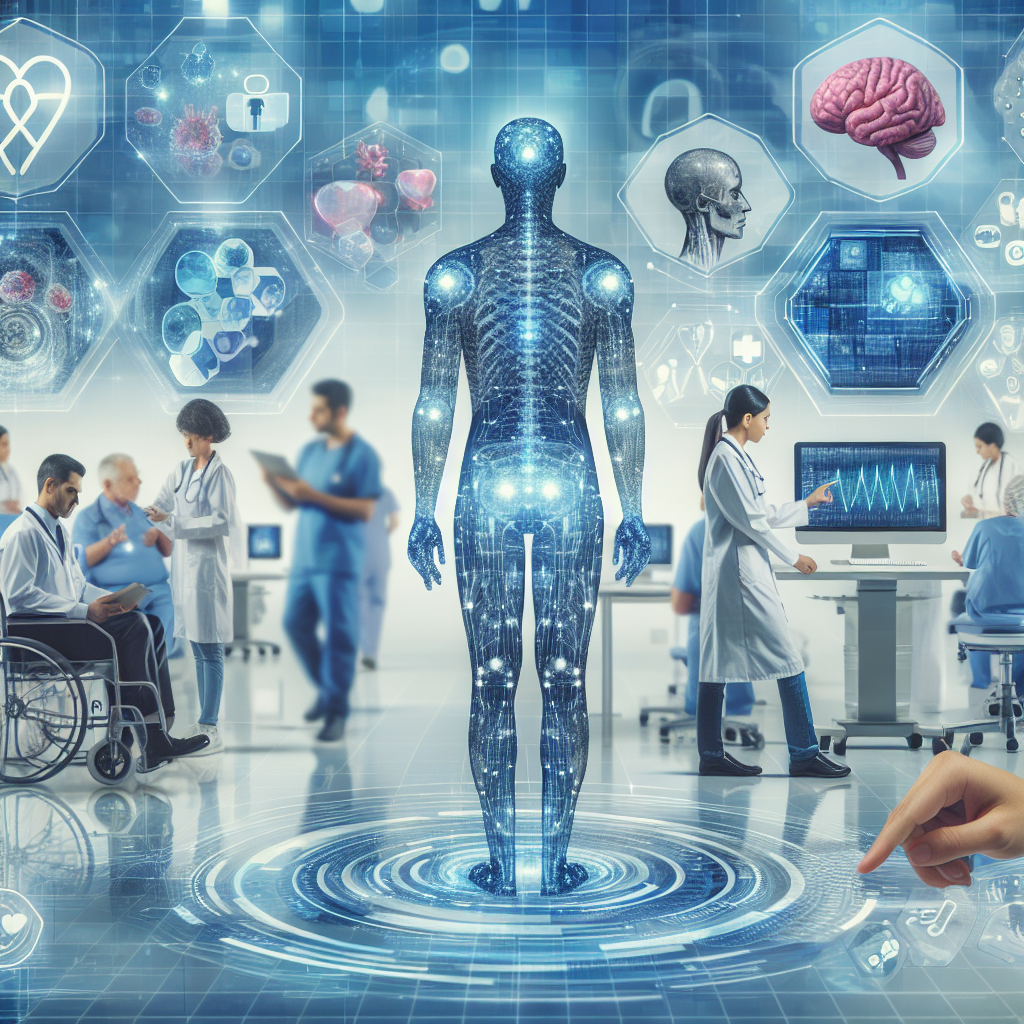Artificial Intelligence (AI) is revolutionizing the healthcare industry by enhancing early detection of diseases. This technology is enabling healthcare professionals to identify medical conditions at an earlier stage, ultimately leading to improved patient outcomes and better quality of care. AI algorithms can analyze vast amounts of data at a much faster rate than humans, allowing for faster and more accurate diagnosis.
AI in healthcare is being used in a variety of ways to detect diseases early on. One of the most common applications is in medical imaging, where AI algorithms can analyze images from MRI, CT scans, and X-rays to detect signs of diseases such as cancer, heart disease, and neurological disorders. By detecting these conditions at an early stage, doctors can intervene sooner and provide more effective treatment.
Another way AI is enhancing early detection of diseases is through predictive analytics. By analyzing a patient’s medical history, genetic information, and lifestyle factors, AI algorithms can identify individuals who are at higher risk for certain diseases. This allows healthcare providers to implement preventive measures and early interventions to reduce the risk of developing these conditions.
AI is also being used to analyze large datasets of patient information to identify patterns and trends that may indicate the presence of a disease. By analyzing data from electronic health records, lab tests, and wearable devices, AI algorithms can detect early warning signs of diseases such as diabetes, hypertension, and autoimmune disorders.
One of the key benefits of using AI in healthcare is the ability to personalize treatment plans based on an individual’s unique characteristics. By analyzing a patient’s genetic makeup, lifestyle habits, and medical history, AI algorithms can recommend personalized treatment options that are tailored to the specific needs of the patient. This personalized approach to healthcare can lead to better outcomes and reduced healthcare costs in the long run.
AI in healthcare is also helping to improve patient outcomes by reducing diagnostic errors. Studies have shown that diagnostic errors are a leading cause of patient harm and can result in delayed treatment or misdiagnosis. By using AI algorithms to assist healthcare providers in the diagnostic process, the likelihood of errors can be significantly reduced, leading to more accurate and timely diagnosis of diseases.
Despite the many benefits of using AI in healthcare, there are also challenges that need to be addressed. One of the main challenges is ensuring the privacy and security of patient data. AI algorithms rely on vast amounts of data to make accurate predictions, and it is critical to ensure that this data is protected from unauthorized access or misuse.
Another challenge is the need for healthcare providers to be trained in using AI technology effectively. Many healthcare professionals may not have the necessary skills or knowledge to incorporate AI into their practice, and training programs are needed to ensure that providers are able to use AI tools effectively.
In conclusion, AI is playing a crucial role in enhancing the early detection of diseases in healthcare. By leveraging the power of AI algorithms to analyze vast amounts of data, healthcare providers can identify medical conditions at an earlier stage and provide more effective treatment to patients. While there are challenges that need to be addressed, the potential benefits of using AI in healthcare are vast and have the potential to transform the way diseases are detected and treated.
FAQs:
1. How is AI being used in medical imaging?
AI is being used in medical imaging to analyze images from MRI, CT scans, and X-rays to detect signs of diseases such as cancer, heart disease, and neurological disorders. AI algorithms can analyze these images at a much faster rate than humans, leading to faster and more accurate diagnosis.
2. How does AI help in predicting diseases?
AI helps in predicting diseases by analyzing a patient’s medical history, genetic information, and lifestyle factors to identify individuals who are at higher risk for certain diseases. By analyzing this information, AI algorithms can recommend preventive measures and early interventions to reduce the risk of developing these conditions.
3. What are the benefits of using AI in healthcare?
Some of the benefits of using AI in healthcare include improved early detection of diseases, personalized treatment plans, reduced diagnostic errors, and improved patient outcomes. AI algorithms can analyze vast amounts of data to identify patterns and trends that may indicate the presence of a disease, leading to faster and more accurate diagnosis.
4. What are the challenges of using AI in healthcare?
Some of the challenges of using AI in healthcare include ensuring the privacy and security of patient data, the need for healthcare providers to be trained in using AI technology effectively, and the potential for bias in AI algorithms. Addressing these challenges is critical to ensuring that AI technology is used effectively in healthcare.

